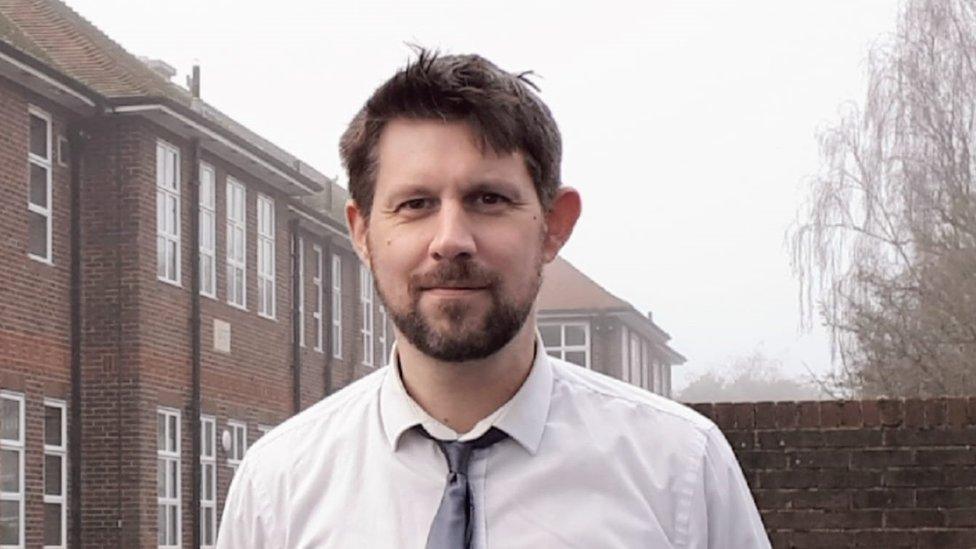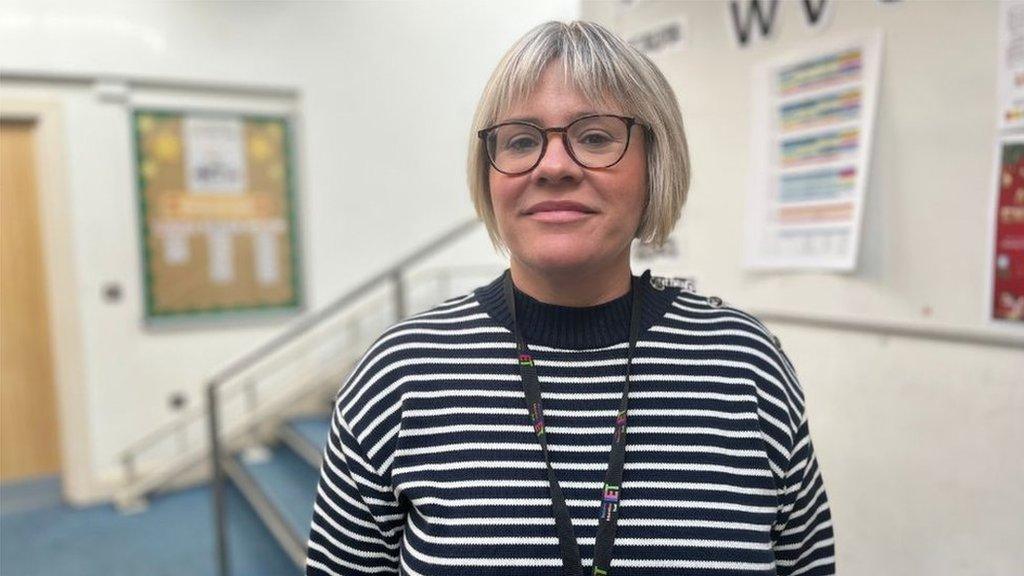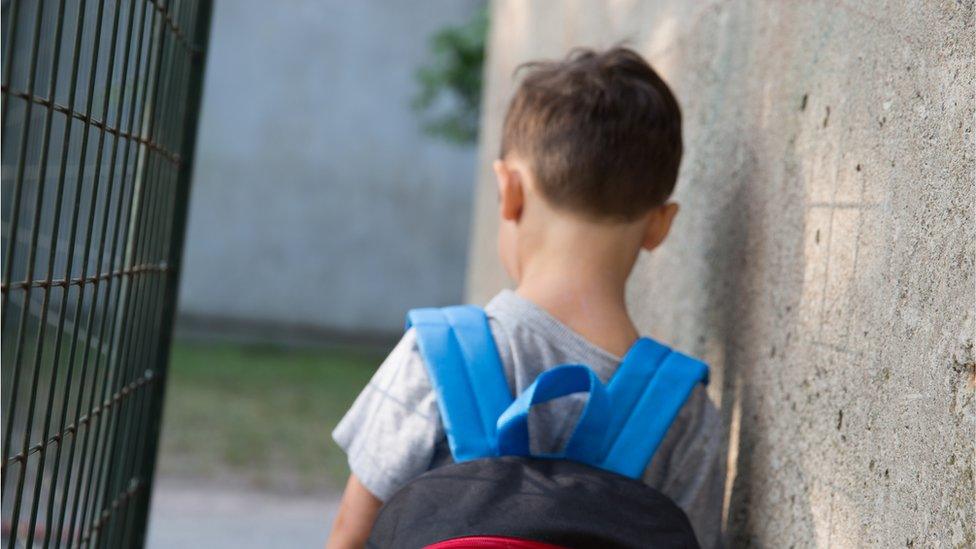School suspension rate hits six-year high across south-east England
- Published

The government said the most common reason for suspensions nationally was persistent disruptive behaviour
The number of children being suspended from schools in south-east England has reached its highest level in six years, government figures have shown.
The recently released figures, which analyses data going back to 2016, reveals an increase in suspension rates in all four regional local authorities.
It comes amid pressure on schools which educate excluded young people.
The government said it backed head teachers using suspension and permanent exclusion where warranted.
East Sussex had a rate of 4.25 pupils per 100 being suspended during the 2022/23 autumn term, while Surrey had a rate of 2.35 pupils per 100 being suspended. The rates were more than double those recorded for the 2016/17 autumn term, at 2.05 (East Sussex) and 1.10 (Surrey).
Both West Sussex and Kent had a rate of 2.14 during the 2022/23 autumn term, significantly higher than in 2016/17, at 1.20 (West Sussex) and 1.45 (Kent).
The September-December 2022 term was the most recent period to be analysed in the Department for Education (DfE) data.
The figures cover state-funded primary and secondary schools, and special educational needs (SEN) schools.
The most common reason for suspensions and permanent exclusions nationally was persistent disruptive behaviour, the government added.
Garry Ratcliffe, the chief executive of the Kent-based Golden Thread Alliance multi academy trust, said schools faced huge challenges.
He said it was "a complicated issue", but that some children had "become less resilient".
He added: "There is also a change in respect for schools, teachers and leadership."

Mr Ratcliffe said it was a "complicated issue"
Phil Clarke, the vice president of the National Education Union (NEU) and a East Sussex secondary school teacher, said the pressure on families was "so huge" that it was almost certain to "have an impact on students".
And a head teacher from East Sussex told the BBC: "The world is a very different place than it was.
"We have got a cost of living crisis. We have got a recruitment and retention crisis in schools. We have got a mental health crisis in young people."

Mr Clarke said the trend did not surprise him
The DfE said guidance for schools was that early interventions and alternative provision should be put in place where pupils were at risk of being permanently excluded.
"We have invested £10m in the Behaviour Hubs programme to support schools to improve behaviour," a spokesperson added.

Follow BBC South East on Facebook, external, on X, external, and on Instagram, external. Send your story ideas to southeasttoday@bbc.co.uk, external.
- Published16 November 2023

- Published27 September 2023
